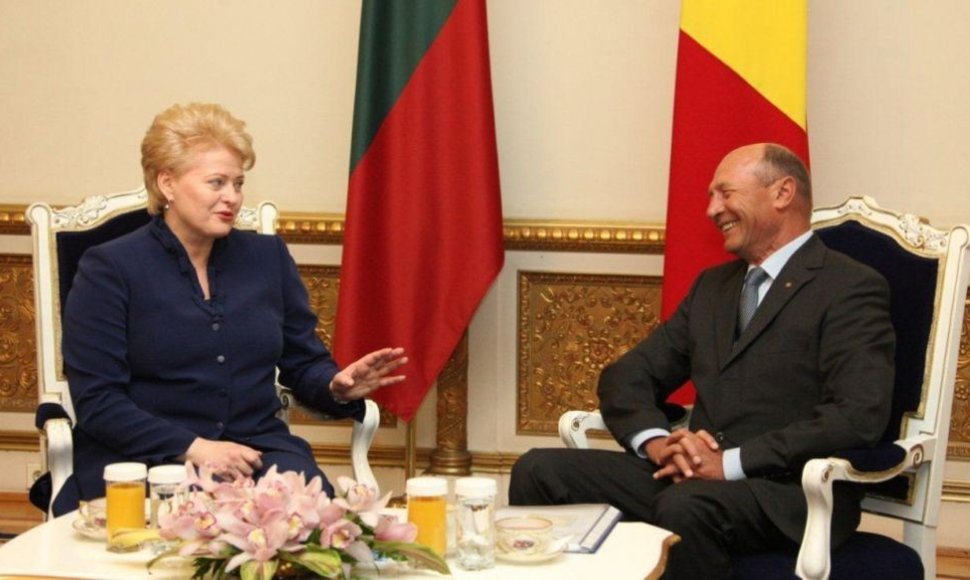"As you know, three prime ministers have been replaced in Romania over the last six months, and that costs a lot to a state, especially for ordinary people. I can say that Romania has managed to take up only 15 percent of EU support since 2007, and this is a country that really needs it. So this political elbowing among the Cabinet, president, and parliament prevents all state structures from working, and the whole State of Romania, the whole Romanian economy and every person suffer," Grybauskaitė told the Lithuanian Television on Wednesday.
The Lithuanian president added that it "should be an example for all of us of what one should not do, especially after elections, as we might get a more varied Seimas and Cabinet."
The Press Service of the President said in a statement on Wednesday Grybauskaitė, President of the Romanian Senate Crin Antonescu, and Prime Minister Victor Ponta discussed bilateral relations, talks on the EU's new financial perspective, Europe's economic situation, energy security issues and cooperation within NATO.
During meeting with the Romanian prime minister and Senate president, the Lithuanian president stressed the importance of political and financial stability in successful development of a country and promoting sustainable development.
Grybauskaitė also said that energy security is a challenge for both countries. Dependent on a monopolist gas supplier, Lithuania and Romania will also cooperate in their efforts to stop as soon as possible energy isolation of separate EU regions, in ensuring an alternative gas supply and in seeking creation of a single EU energy market, the president said.
The meetings also focused on ways of ensuring supply of cheaper natural gas, like the construction of LNG terminals, Europe's future southern gas corridor via Romania and the Nabucco gas pipeline set to link Southern Caucasus and the EU as well as nuclear energy projects in Lithuania and Romania.
The Lithuanian president also thanked Romania for its support in extending the NATO Baltic air policing mission and invited a Romanian expert to join activities of the NATO Energy Security Center in Vilnius.












